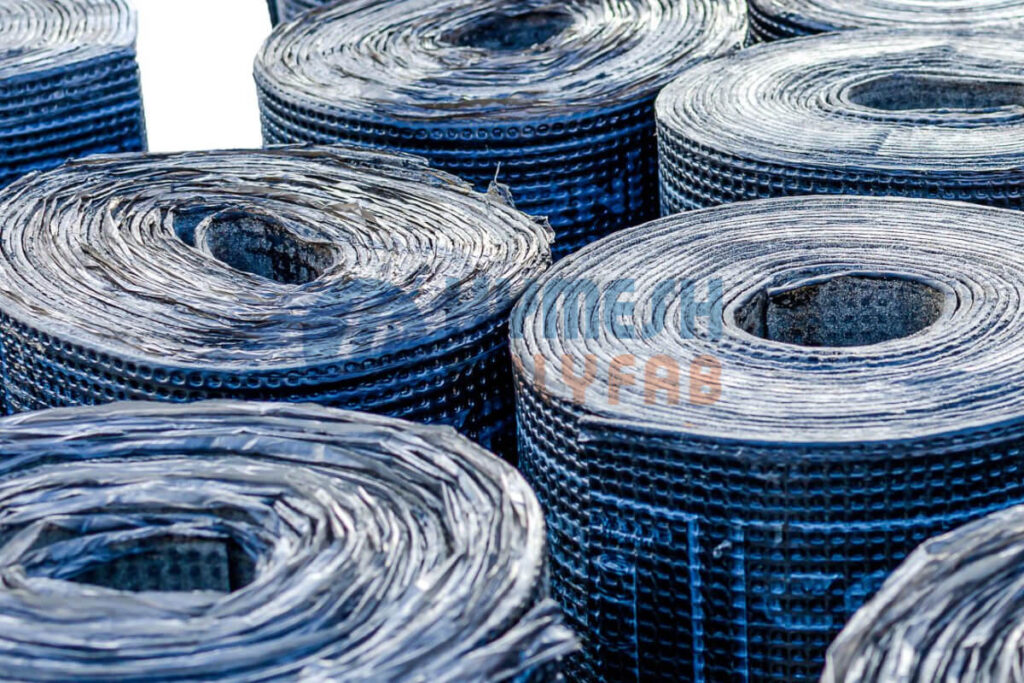
Polypropylene (PP) woven rolls are essential components in various industries, serving functions such as packaging, construction, and agriculture. Manufacturers of PP woven rolls specialize in producing these durable, cost-effective materials. This article explores the intricacies of PP woven roll manufacturers, offering a comprehensive guide to their services, processes, and products
Overview of PP Woven Rolls
PP woven rolls are made from weaving polypropylene strips into a sturdy fabric. These rolls are celebrated for their strength, flexibility, and resistance to tearing, making them ideal for heavy-duty applications. Here’s a brief look at why they are preferred in many sectors:
- Durability: Resistant to wear and tear, weather conditions, and chemical reactions.
- Cost-effectiveness: Cheaper than many alternative materials with similar strength.
- Versatility: Can be used in various applications, from burlap sacks to tarpaulins.
The Manufacturing Process
Step-by-Step Production
Understanding the production process of PP woven rolls can help clients appreciate the quality and effort behind each roll. The process typically involves the following stages:
- Extrusion: Polypropylene granules are melted and extruded into tapes.
- Weaving: The tapes are then woven in circular or flat looms to form a fabric.
- Coating: For additional protection, the fabric can be coated with a layer of polypropylene.
- Cutting and Rolling: Finally, the fabric is cut to the required widths and lengths and rolled for shipment.
Quality Control Measures
Quality control is crucial in the manufacture of PP woven rolls. Manufacturers implement various quality assurance measures to ensure that each batch meets the specified standards. These typically include:
- Material Testing: Testing the tensile strength and durability of the polypropylene.
- Product Inspections: Regular inspections during the manufacturing process to detect any defects.
- Certifications: Compliance with international standards and obtaining necessary certifications.
Applications of PP Woven Rolls
PP woven rolls have a wide range of applications, each benefiting from the material’s robust nature. Some of the most common uses include:
- Packaging Solutions: Used in making sacks for storing and transporting agricultural products, chemicals, and construction materials.
- Geotextiles:Employed in civil engineering projects for soil stabilization and reinforcement.
- Industrial Applications: Used in the automotive industry for making airbag fabrics and seat upholstery.
Choosing the Right PP Woven Roll Manufacturer
When selecting a PP woven roll manufacturer, it’s essential to consider several factors to ensure quality and service. Here are some criteria to guide your choice:
Expertise and Experience
- Industry Reputation: Established manufacturers are generally more reliable.
- Years in Business: Experience often correlates with quality.
Production Capabilities
- Customization Options: Ability to tailor products to specific needs
- Capacity to Deliver: Assess whether they can meet your demand in terms of quantity and timelines.
Sustainability Practices
- Eco-friendly Materials: Use of recycled materials.
- Waste Management: Efficient disposal and recycling practices.
Conclusion
PP woven roll manufacturers play a pivotal role in delivering products that combine durability, cost-efficiency, and versatility. When choosing a manufacturer, consider their expertise, production capability, and commitment to sustainability. With the right manufacturer, you can secure a supply of high-quality PP woven rolls tailored to your specific needs, ensuring your operations run smoothly and efficiently.
Looking for reliable PP woven roll suppliers?
Frequently Asked Questions
1. What are the main advantages of using PP woven rolls over other materials?
PP woven rolls offer several advantages, including high strength-to-weight ratios, resistance to chemicals, moisture, and pests, and cost-effectiveness. They are also lightweight, which reduces transportation costs, and are recyclable, making them a more sustainable option.
2. Can PP woven rolls be customized according to specific requirements?
Yes, PP woven rolls can be customized in various ways. Manufacturers can adjust the thickness, width, color, and UV protection of the rolls. Additionally, they can incorporate features like anti-slip textures or lamination, depending on the specific needs of the customer.
3. Are PP woven rolls environmentally friendly?
PP woven rolls are generally considered environmentally friendly because polypropylene is recyclable. Many manufacturers also incorporate eco-friendly practices by using recycled materials and ensuring efficient waste management during production.
4. How should PP woven rolls be stored to maintain their quality?
To maintain the quality of PP woven rolls, they should be stored in a dry, cool place away from direct sunlight to prevent degradation. It’s also important to keep them off the ground on pallets to avoid moisture absorption and physical damage.
5. What industries commonly use PP woven rolls?
PP woven rolls are widely used in various industries due to their durability and versatility. Common applications include agriculture (for storing and transporting products like grains and chemicals), construction (as ground covers and tarps), packaging (for making sacks and bags), and geotechnical engineering (in the form of geotextiles for soil stabilization and erosion control).
